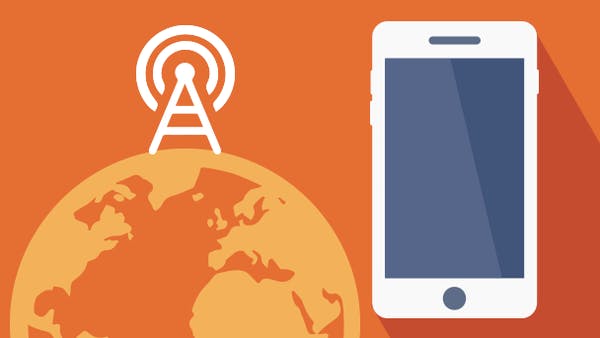As a business, you will come across various terms people will throw out, such as digital marketing or automation. Data roaming is another term that stands out for businesses since you need to understand how and when it’ll affect you. Let’s discuss the ins and outs of data roaming to help you see what it can provide your business.

Contents
What Is Data Roaming?
Data roaming is when you use the internet outside of your phone provider’s network. This commonly happens outside of your home country since your local carriers aren’t available in other places. You can use the internet without your local network, but this usually costs extra money depending on your plan.
Since this varies depending on your phone provider, you will need to contact your company to find out what you will have to pay if you use data roaming. If you need to use your phone often, you could end up getting charged extra to your bill. This means you should find out how much your provider will charge you and your employees before any of you leave the country.
Why Data Roaming Matters
With all this in mind, your business needs to consider lots of costs when it comes to data roaming. Each of these points only cost a bit, but they will add up as you have multiple employees using them abroad. This can cost your business even more money, which can lead to financial problems if you don’t plan accordingly.
This means your business will need to act and ensure you can get the most out of your data roaming. For example, you could look into data clearing house to minimize your roaming expenses and educate yourself on it. This way, you can save your business lots of money as you utilize data clearing house and similar services.
Types of Data Roaming
Before you think you and your employees won’t use data roaming while abroad, you should look into the types of data roaming. We want to go over these types discussed in the previous link to show you what you should expect. This way, you won’t end up with sudden charges on your company’s phone bill.
MMS
Multimedia messaging services (MMS) involve sending various messages to people over the internet. When it comes to phones, this can involve sending messages through different apps or with your phone’s standard text messaging service. Many people will text to communicate, making it difficult to go abroad without this feature.
For example, if your employees need to talk with someone, they may send text messages first to avoid inconveniencing others. While this option works and costs less money than phone calls, your provider may charge you extra when your employees do this. Since many people send multiple texts a day, this can quickly add up in price.
Push-Email
People also like to use push-emails to make things easier for them when they can’t be at their computers. Push-emails are when people receive emails or notifications through their phones to let them know about new emails. This allows those people to stay informed with their emails and respond as soon as they can.
Just like with MMS, push-emails can cost money when you consider data roaming. Sure, you can normally connect to an internet connection for emails, but you may not have immediate access to a computer, preventing you from seeing those messages. Since employees use emails when they work, this can bring another cost to the table when it involves data roaming.
Handset Internet
This one may sound strange, but people use it all the time. Handset internet involves using data to access the internet. People use it to go on web browsers, watch videos, use online apps and even check their email accounts. Since people need to connect to the internet for work, this might be something your employees need to use.
If you need your employees to work online, they will need to access the internet from their phones. This may include logging into your website or looking at emails to talk with coworkers and customers. Even though it may not seem important while abroad, your employees could fall behind without it.
Mobile Broadband
Sometimes, you need to connect your laptop or other devices to the internet, but you may not have access to any Wi-Fi. This makes mobile broadband useful since you can connect to the internet through your phone. In essence, you connect your phone to your laptop, and it will provide its data as an internet connection for your device.
Your employees may need to do some typing, download important documents or access other information on their laptops. This makes mobile broadband important when they can’t access Wi-Fi, but it will contribute to data roaming costs. After all, your employees may need to work when they leave the country.
The Next Step
Now that you understand what data roaming entails, you need to figure out what your business plans to do. Come together with those involved with your business’ finances and your employees who use data roaming to determine what you will need. From there, you can figure out which data roaming services can get you the best value available.
This may also include finding a new provider to ensure you get the best rates. You should look into special business options for multiple phones to get the most out of your money. After all, you don’t want to end up spending more money than necessary when it involves data roaming fees.
Final Thoughts
Data roaming is important to consider when you run a business that travels abroad. Due to this, you should look into data roaming options to find something that will help your business succeed. Keep these points in mind and focus on your data roaming to avoid unnecessary expenses and problems.